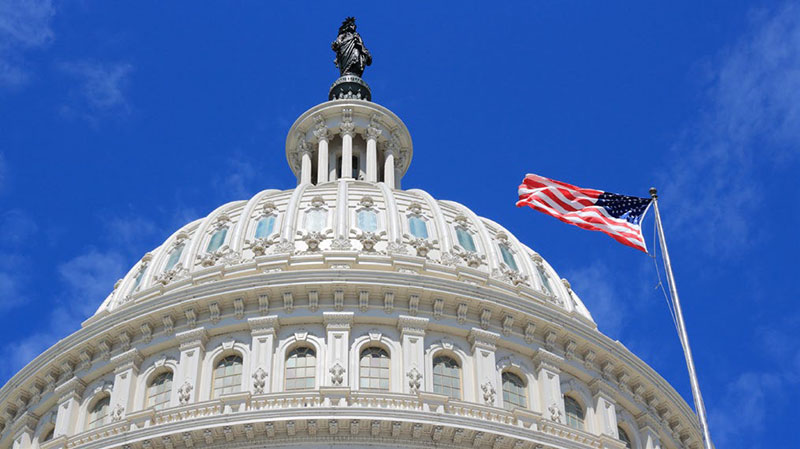
February 2021
Alston & Bird LLP and Aflac
The Taxpayer Certainty and Disaster Tax Relief Act (the “Relief Act”) included in year-end legislation signed into law Dec. 27, 2020, expands prior IRS relief. As was the case with the initial IRS relief, employers may choose whether or not to adopt any of the options provided in the Relief Act. If an employer adopts any of these options, a potentially retroactive plan amendment will need to be made by the end of the calendar year following the plan year to which the change relates. In addition, the IRS has provided additional flexibility for health coverage elections under cafeteria plans for 2021.

Extension of carryover amounts for health FSAs and DCAPs
As part of the Relief Act, unused health flexible spending arrangements (FSAs) and dependent care assistance programs (DCAPs) balances in 2020 may be carried over into 2021, and unused balances in 2021 may be carried over into 2022. There is no limit on the amount of permitted carryover. The prior IRS guidance allowed a more limited carryover and only for health FSAs (not DCAPs). There are special issues to consider for employers that have high-deductible health plans (HDHPs) and want to provide a health FSA carryover. Because of the special rules governing Health Savings Accounts (HSAs), employers that offer an HDHP should consider steps to protect ongoing HSA eligibility for employees (e.g., by restricting carryover funds in a health FSA to limited purpose vision/dental coverage).
Extension of grace periods for health FSAs and DCAPs
Normally, health FSAs and DCAPs may provide a grace period of up to 2.5 months immediately following the end of each plan year (e.g., up to March 15 for a calendar-year plan year). Any unused amounts remaining at the end of the plan year may be used to pay expenses incurred for the same benefits during the grace period. The Relief Act permits a 12-month grace period for unused benefits in health FSAs and DCAPs for plan years ending in 2020 or 2021. Because of the special rules governing HSAs, employers that offer a health FSA and an HDHP should consider steps to protect ongoing HSA eligibility (e.g., by limiting the health FSA grace period duration or by restricting the use of unused funds in the health FSA to limited purpose vision/ dental coverage).
Many employees found that their health and dependent care needs changed due to the impact of the COVID-19 public health emergency. To address these situations, in 2020, the IRS issued Notice 2020-29, which permitted an extended grace period for unused funds in health FSAs and DCAPs and provided additional opportunities to change elections for health coverage and FSA benefits. In addition, the amount of the carryover permitted for health FSAs was increased to $550 due to inflation indexing. More information on these IRS changes may be found in the prior Aflac FSA Advisory.

Temporary expansion of eligible dependent to age 13 for 2020; also for 2021 for unused DCAP grace period or carryover funds
Normally, DCAP benefits may be provided for eligible dependents through age 12 (i.e., dependents who have not turned age 13). The Relief Act permits employers to reimburse DCAP expenses for eligible dependents through age 13 (i.e., dependents who have not attained age 14) for the 2020 plan year. In order for this relief to apply, the plan must have had a regular enrollment period that ended on or before Jan. 31, 2020. The same relief also applies for the next plan year but only for unused grace period amounts from the 2020 plan year or other amounts carried over into the 2021 plan year.
Prospective election changes during 2021 for health FSAs and DCAPs
Prospective changes in health FSA and DCAP elections may be made for plan years ending in 2021 without a corresponding change in status event. This is a one-year extension of the relief provided in IRS Notice 2020-29. For simplicity, employers considering such a provision may want to impose reasonable restrictions on the number of such changes and to possibly restrict prospective health FSA reductions to be no lower than the amount of benefits already paid.
Post-termination spend down for health FSA funds
Plans may permit health FSA participants who terminate participation in the plan during the 2020 or 2021 plan year to spend down their unused balances for expenses incurred through the end of the plan year in which the termination occurred, including any grace period. This approach is similar to what is and has always been permitted for DCAPs. Under such an approach reimbursements are limited to unused amounts already contributed.

Permitted changes to cafeteria plan elections for health coverage
The IRS has provided relief for cafeteria plan elections for 2021. Similar to the relief provided for 2020 in IRS Notice 2020-29, employers may amend their cafeteria plan to allow employees to, on a prospective basis:
This relief applies for plan years ending in 2021.
Where to find more information
IRS Notice 2021-15 provides further detail on the FSA and cafeteria plan options.
Conclusion
The Relief Act and IRS Notice 2021-15 provide employers with new flexibility to adapt to changing circumstances resulting from the COVID-19 pandemic. The IRS may provide further guidance in the future related to how these options work. Employers should consult with their own advisors to determine what options they wish to adopt based on their particular circumstances.
The information herein is provided for general informational purposes and is not provided as tax, legal, or financial advice for any person or for any specific situation. Employers and employees and other individuals should consult their own tax or legal advisers about their situation. Aflac herein means Aflac and Aflac New York.
WWHQ | 1932 Wynnton Road | Columbus, GA 31999.